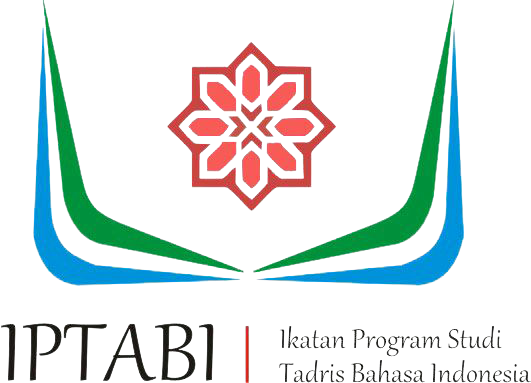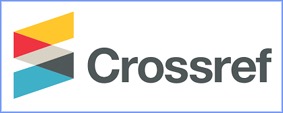Menelusuri Kearifan Kehidupan dalam Cerita Rakyat Rejang Lebong: Analisis Nilai-nilai yang Diungkap
DOI:
https://doi.org/10.29240/estetik.v6i1.6980Keywords:
folklore, Rejang Lebong, value of lifeAbstract
The lack of knowledge of the community and the younger generation about folklore in their own area makes the life values contained in them just get buried. This study aims to describe the values of life in the folklore of Rejang Lebong. This research is a qualitative descriptive research with a content analysis approach. Value data collection techniques, namely documentation studies and literature studies with data sources in the form of documents from the Rejang Lebong folklore in the form of quotations showing life values which are analyzed by reading, identifying, classifying, describing, and presenting research results based on life-values theory according to Haris Supratno. The results showed that twenty Rejang Lebong folktales reflected life values which included educational values (motivation (spirit), interest (aspirations), high curiosity), religious values (grateful, praying, worshiping), moral values (attitude qanaah, persistent, patient, never give up, tolerance, warm-hearted, honest, responsible, polite, confident, trustworthy), leadership values (good leader attitude, wise, realistic, creative, innovative), heroic values (warrior nationalism spirit valiant), the value of courage (trying new things, defending the truth), the value of simplicity (simple in living life without exaggeration), the value of mutual cooperation (help, cooperation), the value of sacrifice (voluntary in fighting for the truth, family, lover).
Downloads
References
Afnita dan Zelvi Iskandar. (2019). Bahasa Indonesia untuk Perguruan Tinggi. Jakarta: Prenadamedia Group.
Alvina, Cut dkk. (2021). Nilai-Nilai Budaya dalam Cerita Rakyat Baturaden pada Masyarakat Banyumas sebagai Alternatif Bahan Ajar Sastra di Sekolah Dasar. Jurnal Perseda, Vol. 4, No. 2.
Arum, Herdina Mustika. (2020). Nilai-Nilai Pendidikan dalam Cerita Rakyat Sendhang Tawun di Kabupaten Ngawi. Skripsi tidak diterbitkan. Universitas Negeri Semarang: Semarang.
Azima, N. S., Furnamasari, Y. F., & Dewi, D. A. (2021). Pengaruh Masuknya Budaya Asing Terhadap Nasionalisme Bangsa Indonesia di Era Globalisasi. Jurnal Pendidikan Tambusai, 5(3), 7491–7496.
Dela, L. (2022). Analisis Bentuk dan Makna Lagu Daerah Suku Rejang di Kabupaten Rejang Lebong [Undergraduate Thesis, UIN Fatmawati Sukarno]. http://repository.iainbengkulu.ac.id/9509/
Dhirta Satria Hanantha, dkk. 2022. Nilai-Nilai Kehidupan Dalam Novel Bumi Karya Tere Liye. BASINDO: jurnal kajian bahasa, sastra Indonesia, dan pembelajarannya, Vol. 7, No. 1.
Emzir dan Saifur Rohman. 2016. Teori dan Pengajaran Sastra. Jakarta: PT RajaGrafindo Persada.
Febrianti, Ririn. 2019. Nilai-Nilai Pendidikan dalam Legenda Batu Panco (Studi Desa Batu Panco Kecamatan Curup Utara). Skripsi tidak diterbitkan. IAIN Curup: Curup.
Fitria, Aulia. 2023. Analisis Nilai-Nilai Budaya Dalam Buku Cerita Rakyat Sejarah “Asal-Usul Angso Duo Jambiâ€. Jurnalistredi, Vol. 8, No. 1.
Gusnetti dkk. 2015. Struktur dan Nilai-Nilai Pendidikan dalam Cerita Rakyat Kabupaten Tanah Datar Provinsi Sumatra Barat. Jurnal Gramatika, Vol. 1, No. 2.
Hamzah, Ridho. 2019. Nilai-nilai Kehidupan dan Resepsi Masyarakat. Cianjur: Puspida.
Ifnaldi, I. (2020). Nilai-Nilai Filosofis dalam Kaba Rambun Pamenan Karya Sutan Mangkudun dkk. ESTETIK : Jurnal Bahasa Indonesia, 3(2), Article 2. https://doi.org/10.29240/estetik.v3i2.1806
Illahi, Revi. 2023. Nilai Moral Cerita Rakyat Situ Sangiang Kampung Wates, Majalengka. Jurnal Ilmiah Diksatrasia, Vol. 7, No. 1.
Insani, Fanila. 2018. Struktur dan Fungsi Sosial Cerita Rakyat Legenda Setempat Batu Galeh di Kenangarian Sungai Antuan Kecamatan Mungka Kabupaten Lima Puluh Kota. Jurnal Program Studi Sastra Indonesia Universitas Negeri Padang, Vol.2 No.1.
Juwati. 2018. Sastra Lisan Bumi Silampari: Teori, Metode, dan Penerapannya. Yogyakarta: Deepublish.
Kurniawan, R., Botifar, M., & Iskandar, Z. (2023). Analisis Cerita Rakyat ‘Muning Raib’ Dengan Pendekatan Mimetik [Undergraduate Thesis, Institut Agama Islam Negeri Curup]. http://e-theses.iaincurup.ac.id/3129/
Krismonikasari dkk. 2022. Nilai-Nilai Budaya dalam Antologi Kunang-Kunang Cerita Rakyat Selakau Timur. Jurnal Untan, Vol. 11, No. 2.
Larasati, Dela. 2022. Analisis Bentuk dan Makna Lagu Daerah Suku Rejang di Kabupaten Rejang Lebong. Skripsi tidak diterbitkan. UIN Fatmawati Sukarno: Bengkulu.
Mond, Aziz. Cerita Rakyat Desa Derati Kab. Rejang lebong Asal Muasal sungai Lubuk Dalam https://www.youtube.com/watch?v=HV7EfrYuFaw. (Diakses 14 Januari 2023).
Mulyati, 2019. Analisis Nilai-Nilai Sosial dalam Kumpulan Cerita Rakyat Bangka Belitung. Jurnal Ilmiah Bina Bahasa, Vol. 12, No. 2.
Supratno, H. (2010). Sosiologi Seni Wayang Sasak Lakon Dewi Rengganis dalam Konteks Perubahan Masyarakat di Lombok. Unesa University Press.
Susilo, J., Juwanda, J., & Dewi, K. P. (2020). Nilai-Nilai Kehidupan pada Novel Paradigma Karya Syahid Muhammad dan Pemanfaatannya Sebagai Bahan Ajar dalam Pembelajaran Teks Novel di SMA. Tuturan Jurnal Pendidikan, Bahasa Dan Sastra, 9(2), Article 2. https://doi.org/10.33603/jt.v9i2.5132
Supratno, Haris. 2010. Sosiologi Seni Wayang Sasak Lakon Dewi Rengganis dalam Konteks Perubahan Masyarakat di Lombok. Surabaya: Unesa University Press.
Downloads
Published
How to Cite
Issue
Section
Citation Check
License
Copyright (c) 2023 Ifnaldi Ifnaldi, Tiara Wulandari, Agita Misriani

This work is licensed under a Creative Commons Attribution-NonCommercial-ShareAlike 4.0 International License.
Authors who publish with ESTETIK : Jurnal Bahasa Indonesia agree to the following terms:
- Authors retain copyright and grant the journal right of first publication with the work simultaneously licensed under a Creative Commons Attribution-NonCommercial-ShareAlike 4.0 International License (CC BY-NC-SA 4.0) that allows others to share the work with an acknowledgment of the work's authorship and initial publication in this journal.
- Authors are able to enter into separate, additional contractual arrangements for the non-exclusive distribution of the journal's published version of the work (e.g., post it to an institutional repository or publish it in a book), with an acknowledgment of its initial publication in this journal.
- Authors are permitted and encouraged to post their work online (e.g., in institutional repositories or on their website) prior to and during the submission process, as it can lead to productive exchanges, as well as earlier and greater citation of published work (See The Effect of Open Access).






